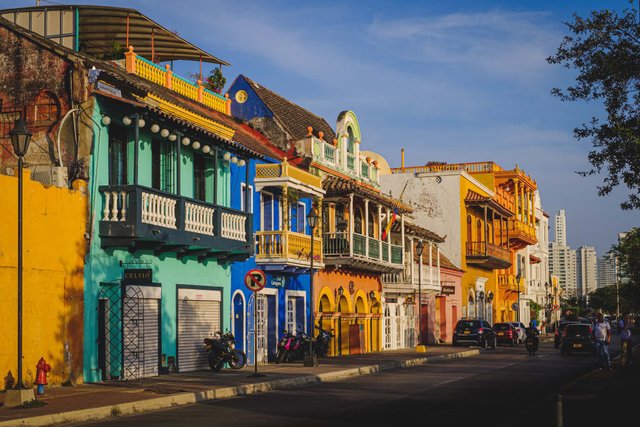
Colombia is a country located in South America, bordered by Panama to the northwest, Venezuela and Brazil to the east, Ecuador and Peru to the south, and the Caribbean Sea and the Pacific Ocean to the north and west respectively. The country has a diverse culture, rich history, and breathtaking natural landscapes that make it a popular destination for travelers and tourists.
Colombia was originally inhabited by various indigenous groups such as the Chibcha, Quimbaya, and Tairona, among others. These groups had their own distinct cultures and ways of life, including agriculture, hunting, and fishing. They also had a strong spiritual connection to the land and nature.
In 1499, Spanish explorer Alonso de Ojeda arrived in what is now Colombia and claimed the land for Spain. The Spanish then began a process of colonization, which included the enslavement of indigenous peoples and the introduction of Christianity. The Spanish also brought African slaves to work in mines and on plantations.
Over time, Colombia became an important center of Spanish colonial power in South America. The city of Cartagena, located on the Caribbean coast, became an important port for trade between Europe and the Americas. In 1810, Colombia declared its independence from Spain, but it wasn't until 1819 that the country was fully liberated from colonial rule under the leadership of Simon Bolivar.
After independence, Colombia faced many challenges, including political instability and violence. In the late 19th century, the country experienced a period of economic growth, driven by the production and export of coffee. This era, known as the "coffee boom," helped to modernize the country and bring about new developments in infrastructure and industry.
However, Colombia continued to face political unrest and violence in the 20th century. In the 1940s, a period known as "La Violencia," saw political violence and civil conflict across the country. This was followed by a period of guerrilla warfare in the 1960s and 70s, as various armed groups fought for control of territory and resources.
In recent years, Colombia has made significant progress in reducing violence and stabilizing the country. The government has implemented various reforms aimed at reducing poverty and inequality, improving public services, and promoting economic growth. Tourism has also become an important industry in Colombia, as visitors come to experience the country's culture, history, and natural beauty.
Today, Colombia is a vibrant and diverse country, known for its friendly people, delicious cuisine, and stunning landscapes. The country is home to a variety of ecosystems, including the Amazon rainforest, the Andes Mountains, and the Caribbean coast. It is also rich in biodiversity, with numerous species of plants and animals found nowhere else on Earth.
In conclusion, Colombia has a complex and fascinating history, shaped by the interaction of various indigenous, European, and African cultures. While the country has faced many challenges over the years, it has also shown remarkable resilience and has emerged as a dynamic and thriving nation. Visitors to Colombia can explore its rich history, enjoy its diverse culture, and experience its breathtaking natural beauty.